Welcome to the Berkshire portal
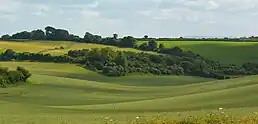
The Royal County of Berkshire, commonly known as simply Berkshire (/ˈbɑːrkʃɪər, -ʃər/ ⓘ BARK-sheer, -shər; abbreviated Berks.), is a ceremonial county in South East England. It is bordered by Oxfordshire to the north, Buckinghamshire to the north-east, Greater London to the east, Surrey to the south-east, Hampshire to the south, and Wiltshire to the west. Reading is the largest settlement and the county town.
The county has an area of 1,263 km2 (488 sq mi) and a population of 911,403. The latter is concentrated in the east, the area closest to Greater London, and includes the county's largest towns: Reading (174,224) Slough (164,793), Bracknell (113,205), and Maidenhead (70,374). The west is rural, and its largest town is Newbury (33,841). For local government purposes Berkshire comprises six unitary authority areas: Bracknell Forest, Reading, Slough, West Berkshire, Windsor and Maidenhead, and Wokingham. The historic county included the parts of Oxfordshire south of the River Thames, which formed its northern border, but excluded Caversham and Slough.
The Berkshire Downs, a chalk downland and area of outstanding natural beauty, occupy the west of the county. They are the source of the River Kennet, which flows east through Newbury before meeting the Thames at Reading. The Thames then forms Berkshire's northern border, flowing past Maidenhead, before entering the county and flowing past Slough and Windsor. The south-east of the county contains Swinley Forest, a remnant of Windsor Forest now used as a forestry plantation.
There is evidence of prehistoric settlement on the Berkshire Downs, including the Iron Age Uffington White Horse, now in Oxfordshire. In the Anglo-Saxon period the region was contested by Mercia and Wessex, and Alfred the Great was born in Wantage, also now in Oxfordshire. Windsor Castle, which would become the official country residence of the British monarch, was built after the Norman Conquest. The county has been the site of several battles, particularly during the First English Civil War, when Reading and Wallingford were besieged two battles took place at Newbury, in 1643 and 1644. The proximity of the east of the county to London led to development from the nineteenth century, when Slough became an industrial centre and Bracknell was designated a new town. Software development and high-tech industry dominate the economy in the east, but the west remains an agricultural region. (Full article...)
Selected article
Windsor Castle is a royal residence at Windsor in the English county of Berkshire. It is strongly associated with the English and succeeding British royal family, and embodies almost a millennium of architectural history.
The original castle was built in the 11th century, after the Norman invasion of England by William the Conqueror. Since the time of Henry I (who reigned 1100–1135), it has been used by the reigning monarch and is the longest-occupied palace in Europe. The castle's lavish early 19th-century state apartments were described by the art historian Hugh Roberts as "a superb and unrivalled sequence of rooms widely regarded as the finest and most complete expression of later Georgian taste". Inside the castle walls is the 15th-century St George's Chapel, considered by the historian John Martin Robinson to be "one of the supreme achievements of English Perpendicular Gothic" design.
Originally designed to project Norman dominance around the outskirts of London and oversee a strategically important part of the River Thames, Windsor Castle was built as a motte-and-bailey, with three wards surrounding a central mound. Gradually replaced with stone fortifications, the castle withstood a prolonged siege during the First Barons' War at the start of the 13th century. Henry III built a luxurious royal palace within the castle during the middle of the century, and Edward III went further, rebuilding the palace to make an even grander set of buildings in what would become "the most expensive secular building project of the entire Middle Ages in England". Edward's core design lasted through the Tudor period, during which Henry VIII and Elizabeth I made increasing use of the castle as a royal court and centre for diplomatic entertainment.
Windsor Castle survived the tumultuous period of the English Civil War, when it was used as a military headquarters by Parliamentary forces and a prison for Charles I. At the Restoration of the monarchy in 1660, Charles II rebuilt much of Windsor Castle with the help of the architect Hugh May, creating a set of extravagant Baroque interiors. After a period of neglect during the 18th century, George III and George IV renovated and rebuilt Charles II's palace at colossal expense, producing the current design of the state apartments, full of Rococo, Gothic and Baroque furnishings. Queen Victoria made a few minor changes to the castle, which became the centre for royal entertainment for much of her reign. In the reign of George VI, it was used as a refuge by the royal family during the Luftwaffe bombing campaigns of the Second World War. An extensive restoration of several state rooms took place after the castle survived a fire in 1992. It is a popular tourist attraction, a venue for hosting state visits, and was the main residence of Elizabeth II from 2011 to 2022. (Full article...)
Selected biography
Ricky Dene Gervais (/dʒərˈveɪz/ jər-VAYZ; born 25 June 1961) is an English comedian, actor, writer, producer, and director. He co-created, co-wrote, and acted in the British television sitcoms The Office (2001–2003), Extras (2005–2007), An Idiot Abroad (2010–2012), and Life's Too Short (2011–2013). He also created, wrote and starred in Derek (2012–2014) and After Life (2019–2022). He has won seven BAFTA Awards, five British Comedy Awards, two Emmy Awards, three Golden Globe Awards, and the Rose d'Or twice (2006 and 2019). The Observer named Gervais one of the 50 funniest performers in British comedy in 2003. In 2007, he was placed at No. 11 on Channel 4's 100 Greatest Stand-Ups, and at No. 3 in their 2010 list. In 2010, he was included in the Time 100 list of World's Most Influential People.
Gervais initially worked in the music industry. He attempted a career as a pop star in the 1980s as the singer of the new-wave act Seona Dancing, and managed the then-unknown band Suede before turning to comedy. He appeared on The 11 O'Clock Show on Channel 4 between 1998 and 2000, garnering a reputation as an outspoken and sharp-witted social provocateur. In 2000, he was given a Channel 4 spoof talk show, Meet Ricky Gervais. He achieved greater mainstream fame the following year with his BBC television mock documentary series The Office, followed by Extras in 2005. He co-wrote and co-directed both series with Stephen Merchant, and played the lead roles of David Brent (The Office) and Andy Millman (Extras). He also wrote the Flanimals book series.
Gervais began his stand-up career in the late 1990s. He has performed five multi-national stand-up comedy tours. Gervais, Merchant, and Karl Pilkington created the podcast The Ricky Gervais Show, which has spawned various spin-offs starring Pilkington and is produced by Gervais and Merchant. In 2016, he wrote, directed and starred in the comedy film David Brent: Life on the Road. Gervais has also starred in the Hollywood films For Your Consideration (2006), the Night at the Museum film series trilogy (2006–2014), Ghost Town (2008), and Muppets Most Wanted (2014). He wrote, directed, and starred in the 2009 romantic comedy film The Invention of Lying and the 2016 Netflix-released comedy film Special Correspondents. He hosted the Golden Globe Awards five times, in 2010, 2011, 2012, 2016, and 2020. (Full article...)
Topics
History: Battle of Reading (871) • Battle of Reading (1688) • First Battle of Newbury • Second Battle of Newbury • Siege of Reading
Geography: River Thames • Swinley Forest • The Ridgeway • Walbury Hill • Windsor Great Park
Towns: Ascot • Bracknell • Crowthorne • Earley • Eton • Hungerford • Maidenhead • Newbury • Reading • Sandhurst • Slough • Thatcham • Windsor • Wokingham • Woodley
Politics: Parliamentary constituencies • Parliamentary representation
Culture: Henley Royal Regatta • Museum of English Rural Life • Reading festival • Windsor Castle
Selected pictures
Did you know
- ... that the cooking of Flora Mae Hunter was enjoyed so much by the Duchess of Windsor that she gained weight on her visits to the plantation where Hunter worked?
- ... that today's funeral procession of Elizabeth II to Windsor Castle started at the gate to Shaw Farm?
- ... that three gasholders at the Windsor Street Gasworks were painted in the claret and blue colours of local football team Aston Villa?
- ... that Windsor Gardens station was built to serve a single apartment complex?
- ... that when Queen Anne became too infirm to follow her pack of Buckhounds on horseback, she had paths cut through Windsor Forest so she could follow the hunt in a carriage?
- ... that comic book artist Barry Windsor-Smith wrote, drew, inked, and lettered every page of his graphic novel Monsters by himself?
Categories
Related portals
WikiProjects
- WikiProject Berkshire
- WikiProject England
Wikimedia
The following Wikimedia Foundation sister projects provide more on this subject:
-
 Commons
Commons
Free media repository -
 Wikibooks
Wikibooks
Free textbooks and manuals -
 Wikidata
Wikidata
Free knowledge base -
 Wikinews
Wikinews
Free-content news -
 Wikiquote
Wikiquote
Collection of quotations -
 Wikisource
Wikisource
Free-content library -
 Wikiversity
Wikiversity
Free learning tools -
 Wikivoyage
Wikivoyage
Free travel guide -
 Wiktionary
Wiktionary
Dictionary and thesaurus
-
 List of all portalsList of all portals
List of all portalsList of all portals -
 The arts portal
The arts portal -
 Biography portal
Biography portal -
 Current events portal
Current events portal -
 Geography portal
Geography portal -
 History portal
History portal -
 Mathematics portal
Mathematics portal -
 Science portal
Science portal -
 Society portal
Society portal -
 Technology portal
Technology portal -
 Random portalRandom portal
Random portalRandom portal -
 WikiProject PortalsWikiProject Portals
WikiProject PortalsWikiProject Portals
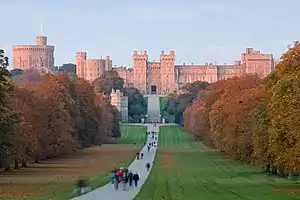
_(cropped).jpg.webp)
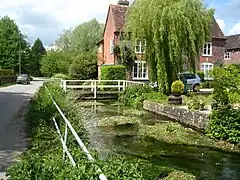

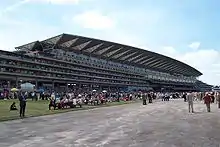
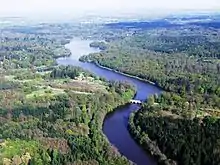
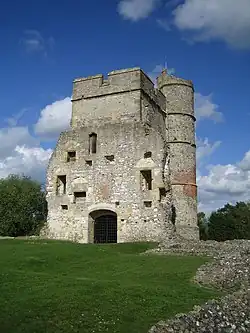
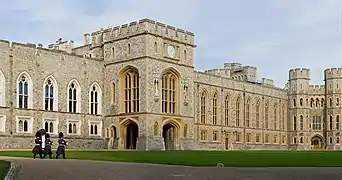
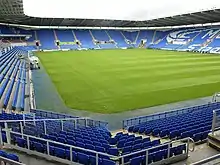
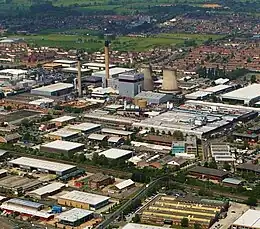
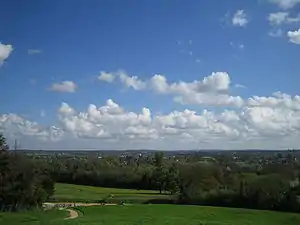
_male_Swinley.jpg.webp)